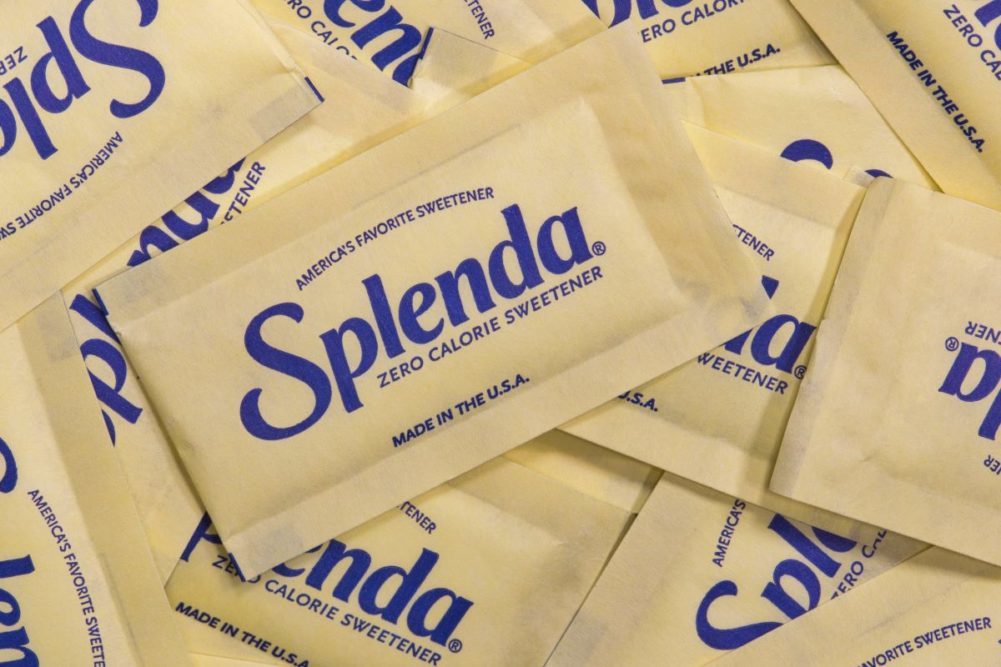CARMEL, IND. — A study published online May 29 in the Journal of Toxicology and Environmental Health found sucralose-6-acetate (S6A) was genotoxic. Although the Splenda brand of sweeteners contains sucralose, it does not contain S6A, which is not the same as the sucralose in Splenda, according to Heartland Food Products Group, which owns the brand.
News reports alleging that the study indicated Splenda caused poor health effects are false, according to the Carmel-based company, which added no conclusions should be drawn about Splenda since the study did not analyze any Splenda products or ingredients.
Researchers at North Carolina State University in Raleigh, NC, led the study. The Engineering Foundation at North Carolina State supported the research. The study found consuming S6A led to a chemical breaking up DNA.
“Our new work establishes that sucralose-6-acetate is genotoxic,” said Susan Schiffman, PhD, corresponding author of the study and an adjunct professor in the joint department of biomedical engineering at North Carolina State University and the University of North Carolina at Chapel Hill. “We also found that trace amounts of sucralose-6-acetate can be found in off-the-shelf sucralose, even before it is consumed and metabolized.
“To put this in context, the European Food Safety Authority has a threshold of toxicological concern for all genotoxic substances of 0.15 micrograms per person per day,” Dr. Schiffman said. “Our work suggests that the trace amounts of sucralose-6-acetate in a single, daily sucralose-sweetened drink exceed that threshold, and that’s not even accounting for the amount of sucralose-6-acetate produced as metabolites after people consume sucralose.”
In the study a series of in vitro experiments exposed human blood cells to S6A and monitored for markers of genotoxicity. In vitro tests also exposed human gut tissues to S6A.
“Other studies have found that sucralose can adversely affect gut health, so we wanted to see what might be happening there,” Dr. Schiffman said. “When we exposed sucralose and sucralose-6-acetate to gut epithelial tissues — the tissue that lines your gut wall — we found that both chemicals cause ‘leaky gut.’ Basically, they make the wall of the gut more permeable. The chemicals damage the ‘tight junctions,’ or interfaces, where cells in the gut wall connect to each other.
“A leaky gut is problematic because it means that things that would normally be flushed out of the body in feces are instead leaking out of the gut and being absorbed into the bloodstream.”
Millions of consumers have used Splenda, a zero-calorie sweetener, according to Heartland Food Products Group. The US Food and Drug Administration and the European Food Safety Authority are some of the food safety organizations that have approved its use.
Dr. Schiffman said the safety and regulatory status of sucralose should be revisited.
“If nothing else, I encourage people to avoid products containing sucralose,” she said. “It’s something you should not be eating.”
Robert Rankin, president of the Calorie Control Council, said the North Carolina State study had shortcomings.
“This study was conducted in a laboratory environment, which cannot mimic the complex mechanisms of the human body, even when human cells are used,” he said. “Therefore, the results of the study cannot be inferred by extension to humans and the general population.
“For the millions of people who rely on low- and no-calorie sweeteners to help manage body weight and reduce the risk of non-communicable diseases like diabetes and obesity, it is important to know the facts, which is sucralose has been rigorously studied by scientific and regulatory authorities around the world and is safe to consume.”
The Calorie Control Council, an international association, represents the low-calorie and reduced-calorie food and beverage industry.

